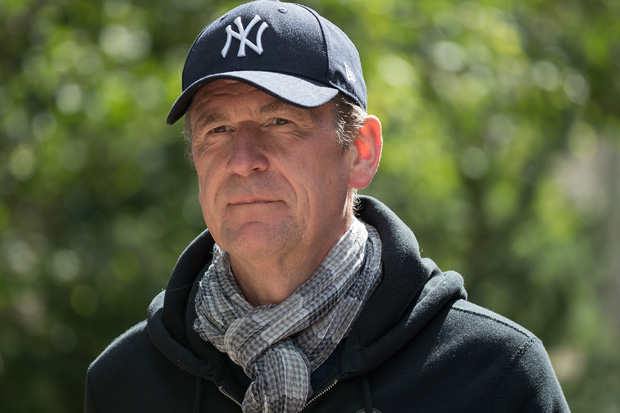Mathias Döpfner, the extremely tall, extremely intelligent head of Axel Springer, is unusual in the generally conformist German business elite because he is not an unqualified believer in the German economic model. I have known him slightly for about 20 years and have always been interested by his questing, speculative mind. We have had conversations about the freer, Anglosphere model of economic life which he admires. Although he is not anti-EU — that is still almost against the law in Germany — he is sceptical of its direction. Now he has blasphemed in the EU’s main church in Britain — the Financial Times — by telling the paper that within three to five years he would expect Britain, as a result of Brexit, to be better off than its former EU partners. He fastens in particular on the relation between welfare and immigration. A country free to choose the entrants it wants, rather than being forced to admit entrants with automatic welfare rights, gains a huge advantage. A country like Germany, committed by the ‘transfer union’ to huge payments to poorer member states, eventually makes itself less appealing to outside investors. As one contemplates the effects of Mrs Merkel’s decision to admit a million migrants in a year, and studies the share price of Deutsche Bank, one wonders if Dr Döpfner’s prediction will come true even sooner than he thinks.
Still, Germany remains a most impressive place. Our son and daughter-in-law have just returned from the Munich Oktoberfest. He is full of amazing statistics. Nearly eight million litres of beer are drunk in three weeks, he says, yet everyone, though quite often drunk, behaves pleasantly: last year six million attended, with minimal disorder. The cleverest thing is the system of waiting. You cannot buy a drink at the bar: the waitresses buy them cheaply for you and then sell them to you at a profit. This incentive makes everything prodigiously efficient. A hundred thousand people can be served at the same time and the waitresses earn an average of €12,000 over the three weeks. Some of them can carry ten steins at once in the folds of their strong arms. Possibly the excellence of the beer may have exaggerated some of my son’s claims. But it is a great tribute to Bavarian culture that the festival makes such a good impression. Vibrant, diverse, edgy London, of course, has the Notting Hill Carnival, attended by fewer than a million. Last month, 450 people were arrested there, 47 police were injured and six people were stabbed.
Matt Ridley, well known to Spectator readers, is giving the Global Warming Policy Foundation’s Annual Lecture on 17 October, at the premises of the Royal Society. The venue has annoyed New Scientist magazine. How dare the great home of science give house room to ‘those who deny climate science’, asks the paper’s ‘biology features editor’, Michael le Page. He hates the ‘false balance’ which presents opposing views. Revealing his own opinions to be more political than scientific, he cites the example of the US presidential election, where ‘the media’s abject failure to tackle Trump has let him get within spitting distance of the presidency’. Perhaps I am biased, since I am a board member of the GWPF, but Ridley does not ‘deny’ climate science. He studies it, and questions some of the conclusions advanced by some ‘warmist’ zealots. In doing so, he adroitly distinguishes between the scientific method and the tendentious assertion. Isn’t that a quintessentially scientific thing to do?
The Spectator Book of Wit, Humour and Mischief (Little, Brown) is just out, launched at a party at the paper’s offices where — wittily, humorously and mischievously — no copies were available. I have now procured one and can report that I laughed a lot when reading it. In his introduction, the book’s editor, Marcus Berkmann, describes how I appointed him the magazine’s one and only pop critic, a post he was to hold with distinction for 27 years. He alleges that when we first met I was sitting in The Spectator’s then offices in Doughty Street ‘wearing the brightest red corduroys I had ever seen’. ‘If a pair of trousers can ever be said to be intimidating,’ Marcus goes on, ‘these could.’ I am sorry to have given him such a fright, but in fact I have never worn red corduroys, since I actively dislike them (though I did once possess a pair of rust-coloured ones), and anyway I always wore a suit in the office. I think Marcus must be in the grip of the syndrome in which one projects on to the memory the archetype in one’s head. Thus civil servants must have worn bowler hats, dons mortarboards and Young Fogeys red corduroys. By the same token, pop critics in those days, I suddenly but vividly remember, had spiky green hair and safety pins through their noses.
Taki is now 80. He and Alexandra, ‘the mother of my children’ as he refers to her in his columns, gave a generous dinner at 5 Hertford Street last week to celebrate this well-nigh incredible fact.
The post The Spectator’s Notes appeared first on The Spectator.
Got something to add? Join the discussion and comment below.
Get 10 issues for just $10
Subscribe to The Spectator Australia today for the next 10 magazine issues, plus full online access, for just $10.
You might disagree with half of it, but you’ll enjoy reading all of it. Try your first month for free, then just $2 a week for the remainder of your first year.















Comments
Don't miss out
Join the conversation with other Spectator Australia readers. Subscribe to leave a comment.
SUBSCRIBEAlready a subscriber? Log in